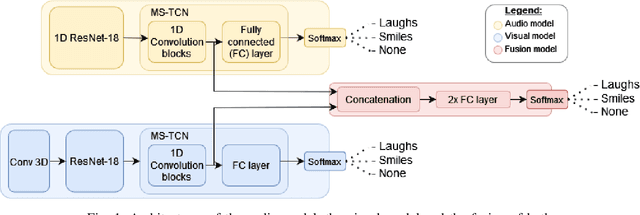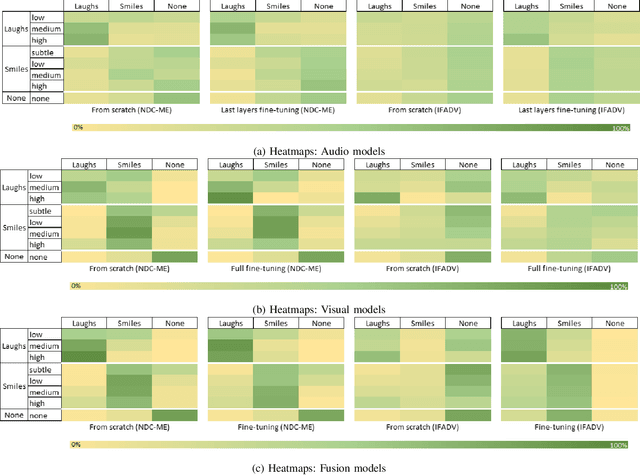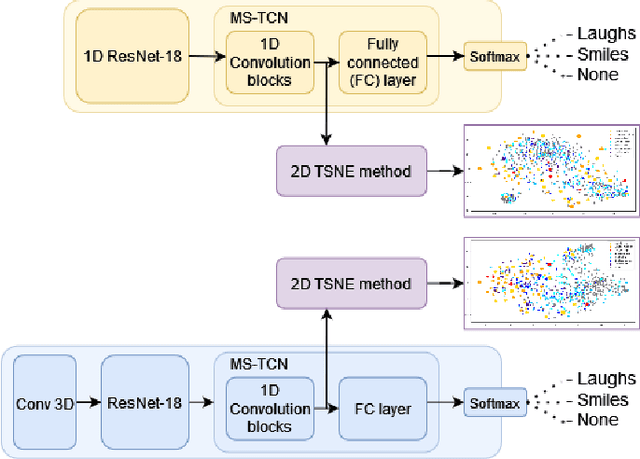A New Perspective on Smiling and Laughter Detection: Intensity Levels Matter
Paper and Code
Mar 04, 2024



Smiles and laughs detection systems have attracted a lot of attention in the past decade contributing to the improvement of human-agent interaction systems. But very few considered these expressions as distinct, although no prior work clearly proves them to belong to the same category or not. In this work, we present a deep learning-based multimodal smile and laugh classification system, considering them as two different entities. We compare the use of audio and vision-based models as well as a fusion approach. We show that, as expected, the fusion leads to a better generalization on unseen data. We also present an in-depth analysis of the behavior of these models on the smiles and laughs intensity levels. The analyses on the intensity levels show that the relationship between smiles and laughs might not be as simple as a binary one or even grouping them in a single category, and so, a more complex approach should be taken when dealing with them. We also tackle the problem of limited resources by showing that transfer learning allows the models to improve the detection of confusing intensity levels.
 Add to Chrome
Add to Chrome Add to Firefox
Add to Firefox Add to Edge
Add to Edge